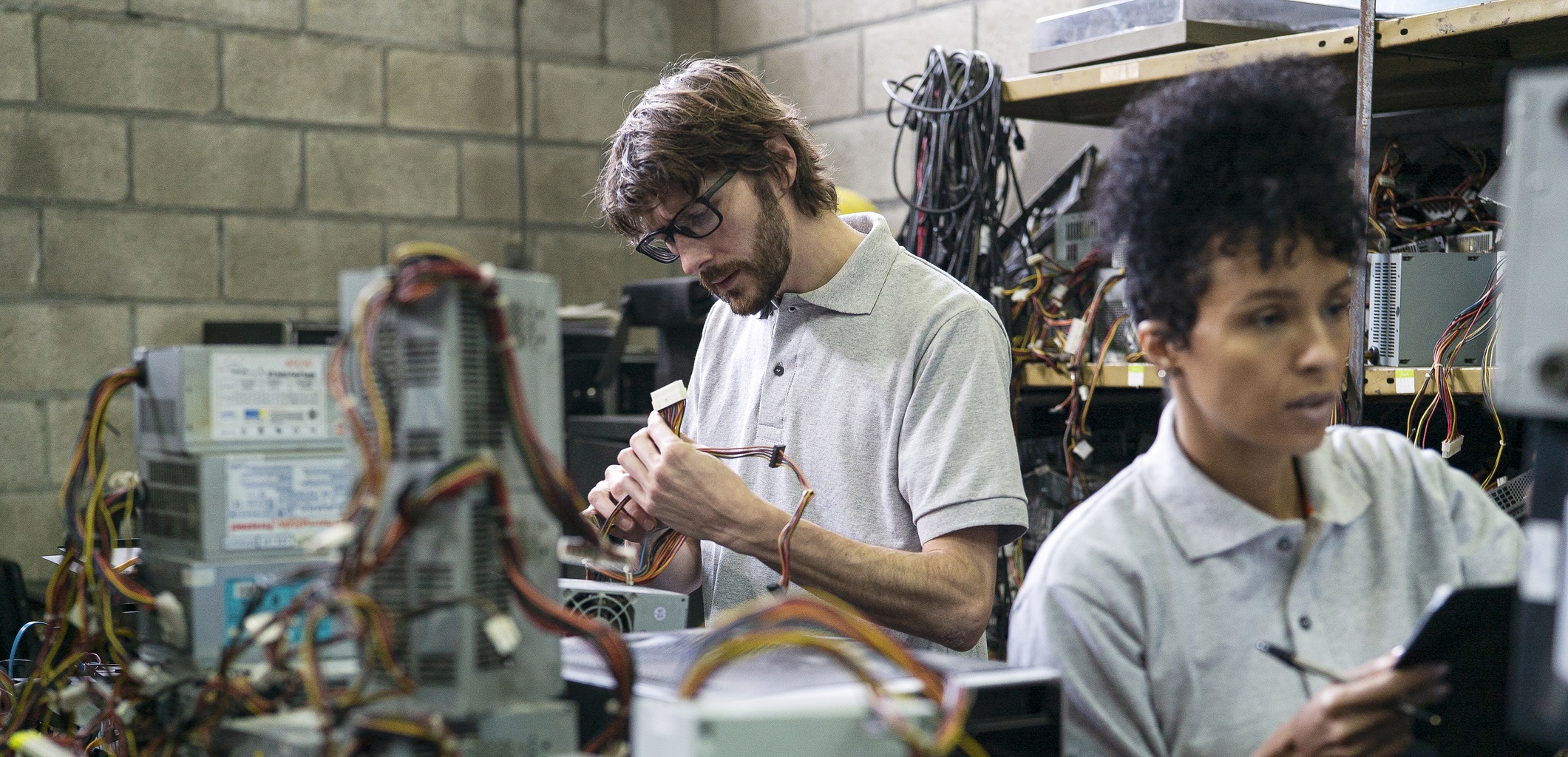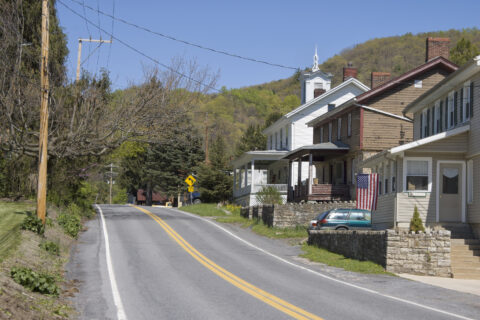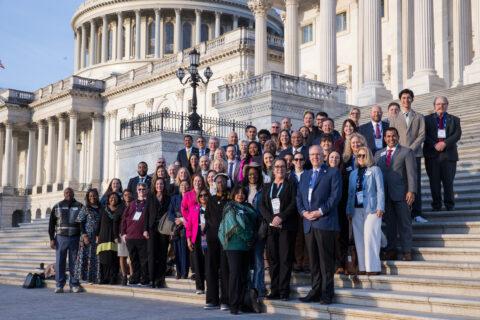Green jobs programs for formerly incarcerated residents help cities meet multiple goals. They are a much-needed investment in workforce development for local sustainability needs like building resilient infrastructure and increasing clean energy capacity. As more governments and industries set climate goals, labor demand for green jobs is outpacing supply. Green jobs are also a way to nurture promising futures for formerly incarcerated residents in need of jobs, stability and support systems. Pathways to stable careers can help formerly incarcerated people break out of cycles of poverty and recidivism, but finding employment can be particularly challenging for them.
As recent examples of incarcerated firefighters have illustrated, even when formerly incarcerated individuals have job experience in sustainability and emergency preparedness, exclusionary policies and practices leave them ineligible for employment in those fields post-incarceration.
Defining Terms
- “Returning citizen” refers to a person who has been released from incarceration and is returning home. This term focuses on an individual’s life and potential after reentry and does not carry the stigma of terms like “ex-con” and “ex-felon.”
- “Justice impacted” refers to returning citizens and currently incarcerated people but can also be used more broadly to include people who have been impacted by the criminal justice system without being incarcerated, such as people who have been convicted, criminally charged or arrested. Sometimes, it may be used to refer to close relatives of someone who has been incarcerated, whose lives may be impacted by their family member’s carceral experience.
Steps Municipalities Can Take to Support Success
Municipalities can take steps to support green career paths for returning citizens and help them thrive once they return home.
1. Develop a Local Green Jobs Plan
Creating a green jobs plan can help prepare for the growing demand for workers in the sustainability field and align local policy and planning objectives to build workforce opportunities and meet environmental goals.
2. Prepare for Reentry Before Release
Establish pathways for successful reentry before individuals are released from corrections facilities. Work across city, county and state agencies, with corrections and probation departments and private sector entities to create a well-supported and connected transition period. Linking training programs within corrections facilities to employment opportunities back home will help create clear and viable career pathways.
3. Create Career Pathways
Provide transitional job opportunities, apprenticeship programs and certification programs through municipal government or local partners. These programs can support participants on a successful career journey by building job experience and learning marketable skills.
4. Partner with Employers and Reentry Organizations
Show employers in the sustainability field the value of second chance employment and tell them about the tax credits and other programs available to them for employing returning citizens. Partner with local organizations and businesses that already participate in second chance employment to boost the effectiveness and visibility of these models and show other employers the value of second chance employment.
5. Ban the Box
Municipal support for “ban the box” initiatives that remove criminal history questions from initial job applications can help create more favorable hiring practices for formerly incarcerated people. For more information on whether a ban the box policy might work for your community, see NLC’s brief, Ban the Box and Local Authority.
6. Provide Wrap Around Support Services
Providing wrap around services like housing, food and transportation support can help returning citizens through the job seeking process and ensure that they meet their basic needs while taking on new challenges and readjusting to life at home.
NLC’s The Challenge & Promise of Reentry in Municipalities shares more recommendations for municipalities to connect returning citizens to professional development programs and sustainable employment. Municipal support for programs like these exist in cities across the country — such as in Philadelphia and Washington, D.C.
City Spotlights
Recycling E-Waste and Creating Employment Pathways in Philadelphia
Based in Philadelphia, PA, People Advancing Reintegration (PAR) Recycle Works is an electronics recycling nonprofit reducing the amount of electronic waste that ends up in landfills and creating job opportunities for formerly incarcerated people. PAR gives transitional employment, job skills training and permanent job placement to formerly incarcerated people, assisting with their reintegration into the community. These jobs create training opportunities for participants so that they can gain necessary skills and certifications to attain long-term employment.
“The more e-waste PAR receives, the more people it puts to work — immediately!” said Peggy Robertson, PAR’s Grant Writer.
PAR received grant funding from Philadelphia’s Office of Sustainability to grow their work, helping the city reduce waste while creating employment opportunities. “As Philadelphia transitions towards a green economy, equitable access to training and employment opportunities is crucial,” said Justina Thompson, Program Manager for Environmental Justice at Philadelphia’s Office of Sustainability. “PAR Recycle Works demonstrates a great model for supporting returning citizens in their transition back home and into a developing green workforce.”
According to Robertson, the city’s funding support is an investment in local enterprise, sustainability, and vital community needs. “PAR-Recycle Works is grateful for a grant from the Philadelphia Office of Sustainability for supporting our sustainable business that reflects the values of social justice and environmental responsibility to achieve a meaningful and positive impact in its communities.”
Building Resilience and Opportunity in Washington, DC
The District of Columbia Department of Energy & Environment’s Returning Citizens Workforce Development Program provides training to formerly incarcerated people in green stormwater infrastructure (GSI) management. Participants learn critical environmental job skills, gain hands on experience maintaining GSI sites around the city and receive OSHA Construction Safety and CPR Response training.
Participants can be matched with potential employers either through the program or after. Trainees also have access to wrap around services and a case worker to help them navigate job seeking. Twelve trainees completed the program’s first cohort in 2022 and seven were offered employment in GSI maintenance upon successfully completing the program.
By creating green job opportunities for formerly incarcerated people, cities invest in thriving futures for formerly incarcerated residents and enable these residents to play a role in fostering resilient and future-ready environments for the whole community.
Prosecutorial Dashboards & Incarceration
Learn about the impact innovative data management strategies are having to reduce incarceration and make communities safer. Here, you also explore public-facing data dashboards from across the country.








